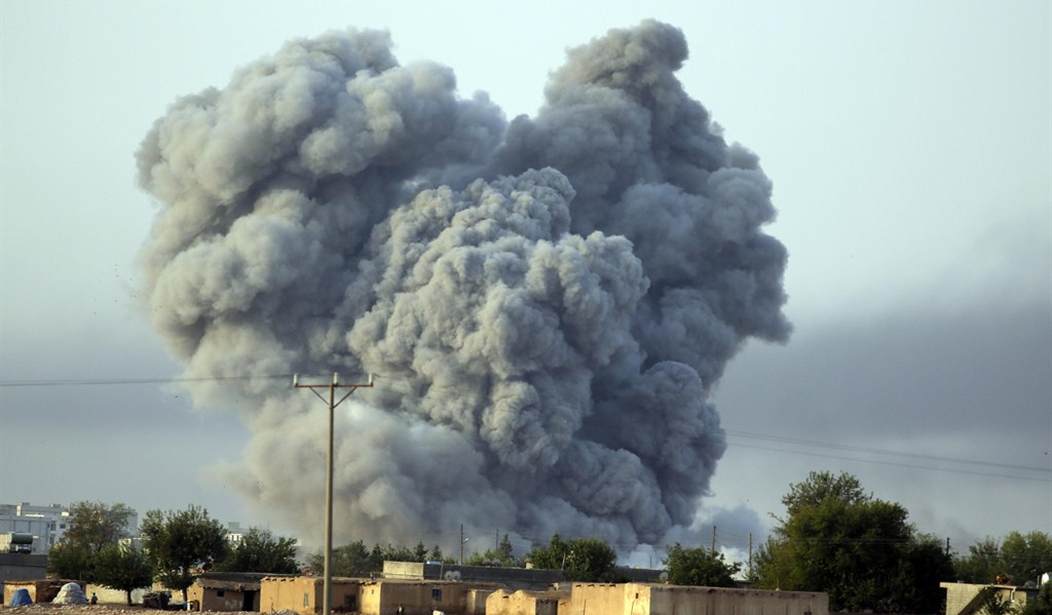Four weeks ago President Barack Obama declared that organizing an effective international coalition was an essential predicate to defeating and destroying the threat to world order posed by the so-called Islamic State.
Defeat and destroy -- the former community organizer turned coalition organizer said those were his goals.
Forging an international coalition is a complex diplomatic operation, but presumably it is just the type of multi-national challenge which would swiftly yield to the "smart diplomacy" Obama's 2008 presidential campaign promised to employ.
At this point in time, six years on, it's a slam-dunk certainty that the Obama administration would prefer you forget the "smart diplomacy" tout.
It was, even at the time, self-infatuated foolishness. I argued that it was another glib slander fabricated to portray Obama as a world-wise sophisticate and smear George W. Bush a stupid and maladroit gunslinger.
Diplomacy as practiced by professionals is the architectural pursuit of interim agreements in order to achieve long-range objectives. Diplomatic "breakthroughs" are rare. Those that occur have deep roots based on long-term political reliability and clearly converging immediate interests. President George H. W. Bush used these levers (and personal experience) when he created the Desert Shield alliance following Saddam Hussein's August 1990 Kuwait invasion.
"Smart diplomacy" did a disservice to diplomacy, in the prescient words of Rudy Guiliani implying that diplomacy could "solve nearly all problems, even those involving people dedicated to our destruction. When such efforts fail, as they inevitably do, diplomacy itself is blamed, rather than the flawed approach that led to their failure." To achieve what Guiliani called a realistic peace, American "diplomacy must be tightly linked to our other strengths: military, economic and moral."
Recommended
Guiliani was responding indirectly to irresponsibly snotty questions like that asked in September 2007 by Rep. Tom Lantos of then-U.S. ambassador to Iraq Ryan Crocker. Lantos asked Crocker if the US would pursue diplomacy with Iran. Crocker informed Lantos that he had met with the Iranians and "the conclusion I came away with after a couple of rounds was that the Iranians were only interested in the appearance of discussion ... " The Iranians want to be "seen at the table with the U.S. instead of actually doing serious business." The appearance of negotiations, rather than the substance, advanced Iranian objectives.
Obama's anti-IS coalition is also short on substance. However, after a month of presidential bravado, Obama's anti-Islamic State coalition is little more than a loose collection of promises, occasional airstrikes and jaw-dropping political errors.
The latest jaw-dropper involved the Obama administration's frothy announcement that coalition aircraft could now launch bombing raids from Turkish air bases (presumably the NATO base an Incirlik). Turkish officials quickly quashed that claim. Basing in Turkey remains, well, under discussion. Smart diplomacy? This is "foot in mouth" blundering, to the benefit of the Islamic State's beheaders.
The IS's nascent caliphate controls most of eastern Syria and several key Iraqi cities on the Tigris and Euphrates Rivers north and west of Baghdad. Despite a month of coalition organizing, IS is attempting to expand its area of influence. For the past week, IS fighters have conducted motorized and light armor forays west of Baghdad, at one point probing the international airport. Probing the airport generated headlines, and the headlines have political (and hence, diplomatic) effects. The diplomatic effects of this military and media diplomatic operation include exposing the U.S.-led coalition as -- well, ineffective.
Another effect: the probes are a recruiting tool to convince young, wannabe jihadis that the caliphate is winning.
Yet another effect of IS diplomacy integrated with military power: inciting fear throughout Iraq. The probes west of Baghdad prompted some Iraqi politicians to ask for U.S. ground troops to back up the Iraqi Army. U.S. Secretary of State John Kerry turned the Iraqis down. After all, President Obama promised no American "boots on the ground" and at least until the November mid-term elections, that promise takes precedence over responding to an ally's request for help. Ah yes, such moral strength!

























Join the conversation as a VIP Member